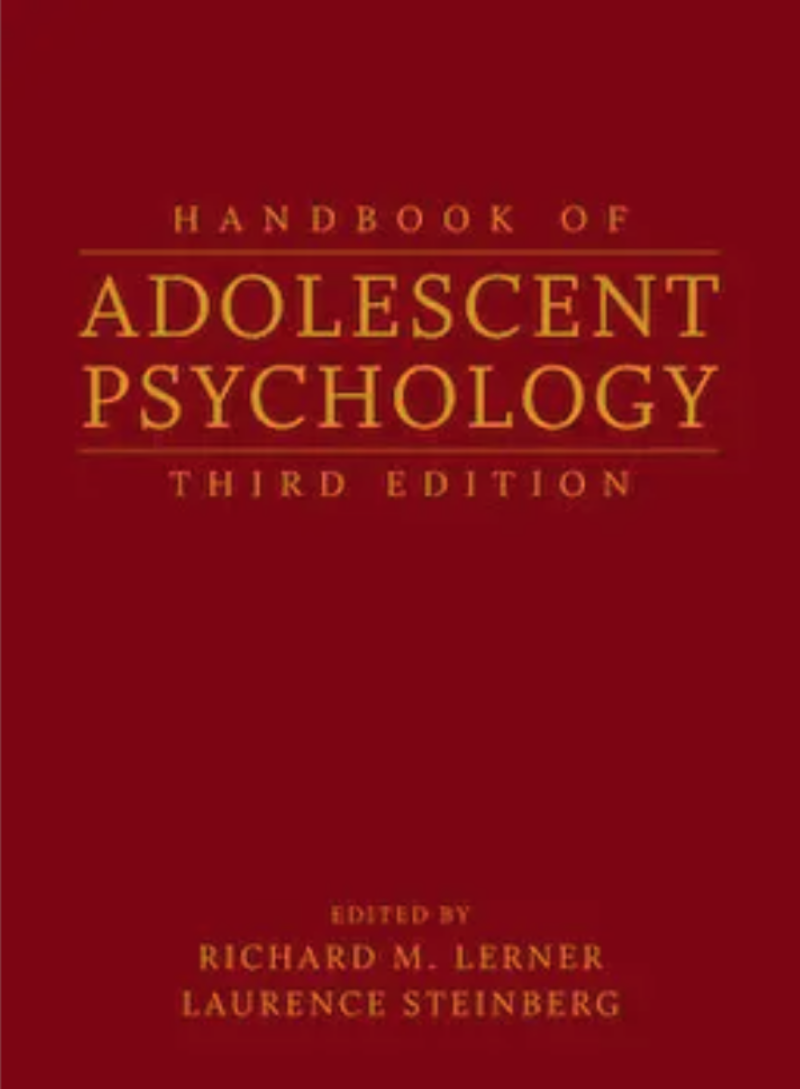Citation
King, P. E., & Roeser, R. W. (2009). Religion and spirituality in adolescent development. In R. M. Lerner, & L. Steinberg (Eds.), Handbook of Adolescent Psychology: Vol. 1. Individual bases of adolescent development (3rd ed.) (pp. 435-478). Hoboken, NJ, US: John Wiley & Sons Inc.
Abstract
The study of and interest in adolescence in the field of psychology and related fields continues to grow, necessitating an expanded revision of this seminal work. This multidisciplinary handbook, edited by the premier scholars in the field, Richard Lerner and Laurence Steinberg, and with contributions from the leading researchers, reflects the latest empirical work and growth in the field.
Copyright
Year: 2009
Holder: Wiley & Sons, Inc
DOI: https://www.wiley.com/en-us/Handbook+of+Adolescent+Psychology%2C+Volume+1%3A+Individual+Bases+of+Adolescent+Development%2C+3rd+Edition-p-9780470149218
Continue Exploring

Youth
“We are Protected”: Examining youth perceptions of safety
“We are Protected”: Examining youth perceptions of safety within a faith-based positive a faith-based positive youth development program in El Salvador / Journal of Youth Development

Spirituality
Religion as Fertile Ground
Abstract An extensive body of research points toward spirituality and religiousness as resources for promoting human thriving. People with strong connections to the transcendent and religious meaning in life often view morals and values as central to their self-concepts. Although moral identity theory and contemporary views of virtue development emphasize the importance of narrative identity for habituated moral action, the two are often discussed in isolation of each other. In this chapter, the authors highlight how their commonality is particularly evident when examining the potential of religion to provide a transcendent self-narrative that leads to virtue formation and moral action…

Gratitude
How diverse beliefs shape the experience of transcendent gratitude
Citation Nelson, J., Mangan, S., Baer, R. A., Ramdass, J. V., & King, P. E. et al. (2024). How diverse beliefs shape the experience of transcendent gratitude, The Journal of Positive Psychology, 19(1), 11-24. Abstract As a novel contribution, this study considers transcendent gratitude (e.g. gratitude towards non-human benefactors such as God, Science, or Karma) across diverse belief systems. The sample included 619 participants (M age 37.5, 52.6% female) across the U.S. with beliefs across three distinct categories: a) Theistic; 38.4%), b) Spiritual but not theistic; 26.4%, and c) Non-theistic/Non-spiritual (Other);…


